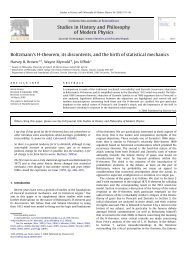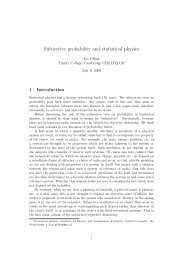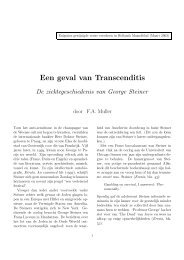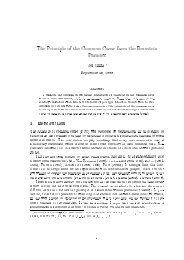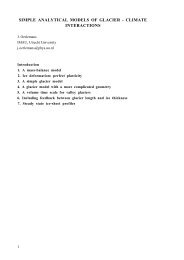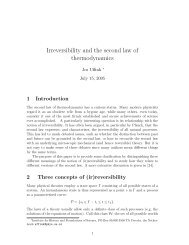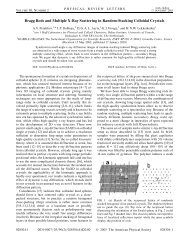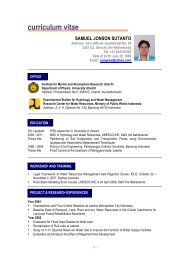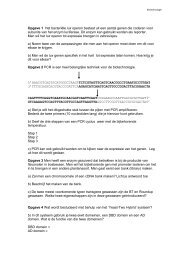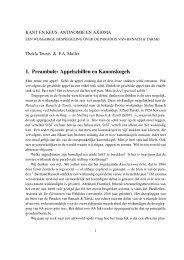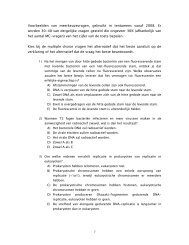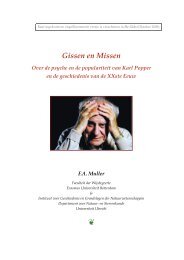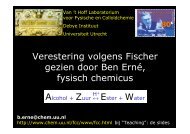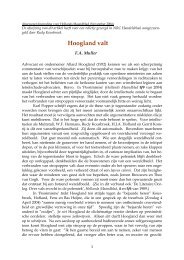FOUNDATIONS OF QUANTUM MECHANICS
FOUNDATIONS OF QUANTUM MECHANICS
FOUNDATIONS OF QUANTUM MECHANICS
Create successful ePaper yourself
Turn your PDF publications into a flip-book with our unique Google optimized e-Paper software.
I. 2. INCOMPLETENESS AND LOCALITY 15<br />
by ‘influence’ the ‘defining effect’ of the context of measurement. The experimental circumstances<br />
define what you may call physical reality. Physical reality is not defined by experiments you could do,<br />
as is the case according to EPR, but exclusively by experiments you actually do. Under circumstances<br />
as described in the EPR experiment this ‘defining effect’ of the experimental setup also reaches parts<br />
of the system with which the measuring apparatus has no physical interaction.<br />
A distinct difference between Einstein and Bohr is that Einstein wants to visualize reality independent<br />
of observation, whereas Bohr is satisfied with complementary pictures of which the applicability<br />
always remains dependent on the chosen measurement setup. In 1955 Einstein says (Fine 1986, p.95)<br />
It is basic for physics that one assumes a real world existing independently from any act<br />
of perception. But this we do not know. We take it only as a programme in our scientific<br />
endeavors. This programme is, of course, prescientific and our ordinary language is<br />
already based on it.<br />
And concerning the EPR situation he says (Schilpp 1949, p. 85)<br />
But on one supposition we should, in my opinion, absolutely hold fast: the real factual<br />
situation of the system S 2 is independent of what is done with the system S 1 , which is<br />
spatially separated from the former.<br />
Bohr’s conceptions concerning physical reality are much more difficult to characterize. According<br />
to him there is no independent reality of which the physical theory would have to give an unambiguous<br />
representation. He writes (Schilpp 1949, p. 211)<br />
Thus, a sentence like “we cannot know both the momentum and the position of an atomic<br />
object” immediately raises questions as to the physical reality of two such attributes of the<br />
object, which can be answered only by referring to the conditions for the unambiguous<br />
use of space - time concepts, on the one hand, and dynamical conservation laws, on the<br />
other hand.<br />
An exhaustive description of reality must always use concepts which themselves remain dependent<br />
on mutually excluding contexts. Bohr says (A. Petersen 1963, p. 11)<br />
The word ‘reality’ is also a word, a word which we must learn to use correctly.<br />
He constantly emphasizes the restricted applicability of our physical concepts, which makes the link<br />
between description and reality very complicated. Petersen mentions (ibid., p. 12)<br />
When asked whether the algorithm of quantum mechanics could be considered as somehow<br />
mirroring an underlying quantum world, Bohr would answer, “There is no quantum<br />
world. There is only an abstract quantum physical description. It is wrong to think that<br />
the task of physics is to find out how nature is. Physics concerns what we can say about<br />
nature.”



